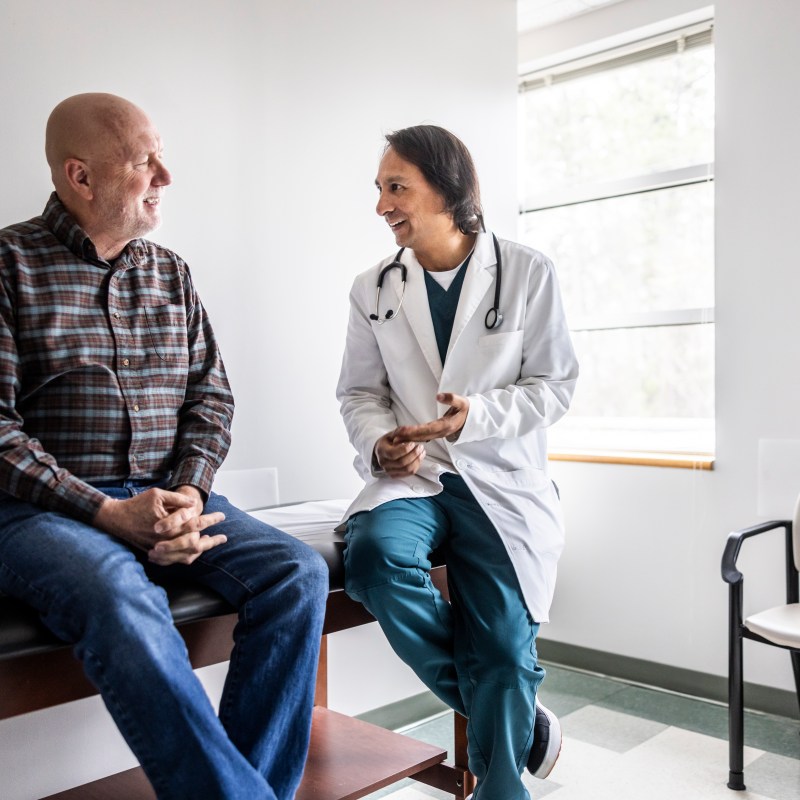
Some travelers travel across the world to obtain medical care from a respected healthcare system.
Videos by TravelAwaits
In fact, medical tourism is on the rise for a range of procedures, from cosmetic surgeries to cardiology treatments to basic check-ups. But this new trend is bucking previous ideas about medicine and tourism.
For most travelers, the idea of visiting the doctor while abroad conjures anxiety.
As someone who has been cared for by doctors in Spain, Costa Rica, India, and Taiwan, I understand that sentiment. Medical facilities are often cold and sterile, while language barriers create confusion and distress.
That being said, having a background in what to expect at a doctor’s office abroad can help minimize stress. If you’re interested in learning more about what to expect when visiting a doctor or hospital abroad—with or without travel insurance—here’s an overview of what you need to know.
First up, let’s talk about how to prepare for success before leaving.
Before the trip, set yourself up for success
Medical emergencies come out of nowhere. If you want to be prepared for a health crisis while abroad, here’s what you need to bring with you:
- Health documents, including current medications and dosages, your primary care physician’s name and contact information, medical history, and any other pertinent health concerns. Even better if you translate this information beforehand.
- Obtain travel insurance, especially if you’re prone to health problems. If you’re currently undergoing treatment or are recovering from a major procedure, I recommend researching trusted hospitals and clinics at your destination—just in case.
- Read the fine print so that you know what your travel insurance covers and what it doesn’t. Most policies cover emergencies rather than things like stomach bugs and colds.
- Pack medications that help you with run-of-the-mill sickness, such as NyQuil or Aleve. That can help you manage any symptoms before you’re able to see a doctor.
Visiting a hospital or doctor abroad: FAQs
How can you find an English-speaking doctor?
If your travel insurance doesn’t help you find an English-speaking doctor, then there are a few ways to seek one out yourself.
- If you’re staying at a hotel, ask the concierge. Ideally, they’ve helped guests in a similar position before. But even if they haven’t, they can probably point you to another staff member or local who can help you find the right medical center with English-speaking doctors.
- If hotel staff can’t help, call your local embassy or consulate. US embassies and consulates are available to help Americans in case of emergency. Given their experience handling medical emergencies, they should have plenty of resources to help you navigate your situation.
- Use a directory like IAMAT. IAMAT is an international medical advisory board. You can quickly book a virtual meeting with an English-speaking doctor who works at an IAMAT-affiliated center near you. It’s a little pricey, but you don’t need a membership to benefit from its network.
How do you know what will be covered when visiting a doctor abroad?
Even when visiting a local hospital in the US, it’s hard to know what procedures and services will be covered by insurance. Unfortunately, that’s sometimes the case abroad.
When visiting a doctor abroad, I recommend you take photos of all paperwork turned over to you—that way, you have an overview of the procedures and fees incurred during your care.
Depending on your travel insurance policy, you might be expected to pay upfront and then receive a reimbursement later on.
What if it’s an emergency and there’s a language barrier?
Language barriers can cause serious problems when there’s a medical emergency. Once upon a time, I was stung by a scorpion while staying with a family in rural Cambodia. They didn’t speak English and I didn’t speak Khmer.
My best bet at communicating that I’d been stung on the hand was to draw a picture.
Long story short: I didn’t receive medical care that night. I woke up with a nerve-shot hand that felt like it had been asleep for hours on end. I was able to get antihistamines the next day, which quickly sorted out the situation.
The moral of the story? Sometimes, your options will be limited. There’s no magical solution for a language barrier. The farther off the beaten path you wander, the more patient and resilient you must be in these situations.
But, generally speaking, major hospitals in large cities worldwide should have a member of staff who speaks basic English. If you end up in a hospital where the current staff doesn’t speak English, you can ask for an interpreter or an advocate.
How can you learn more about a country’s healthcare system?
There are two easy ways for you to learn more about a country’s healthcare system and your options for medical care when visiting a doctor abroad.
- Call an embassy or consulate. American staff are usually well-versed in how the country’s medical care system works and how Americans abroad can best utilize it.
- Facebook and forums. The expat pages on Facebook and similar social media forums are great for asking questions to well-traveled Americans who have spent time at your destination.
